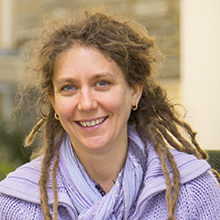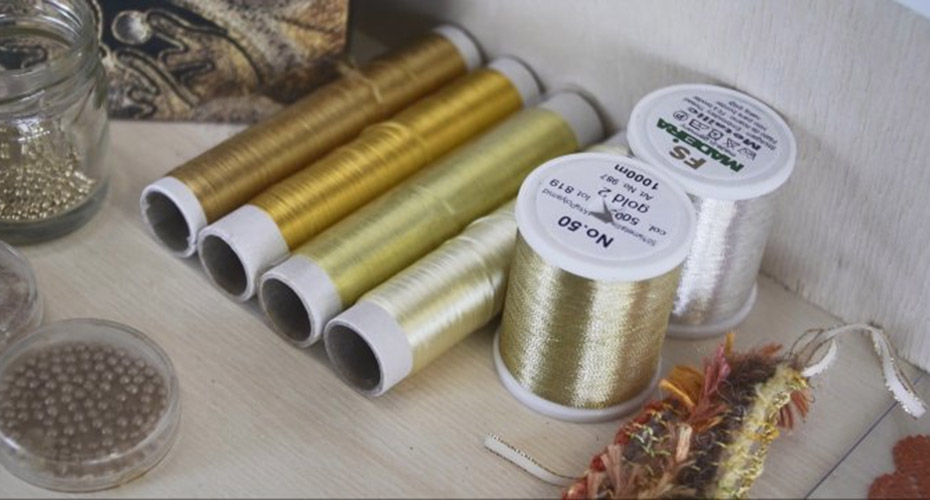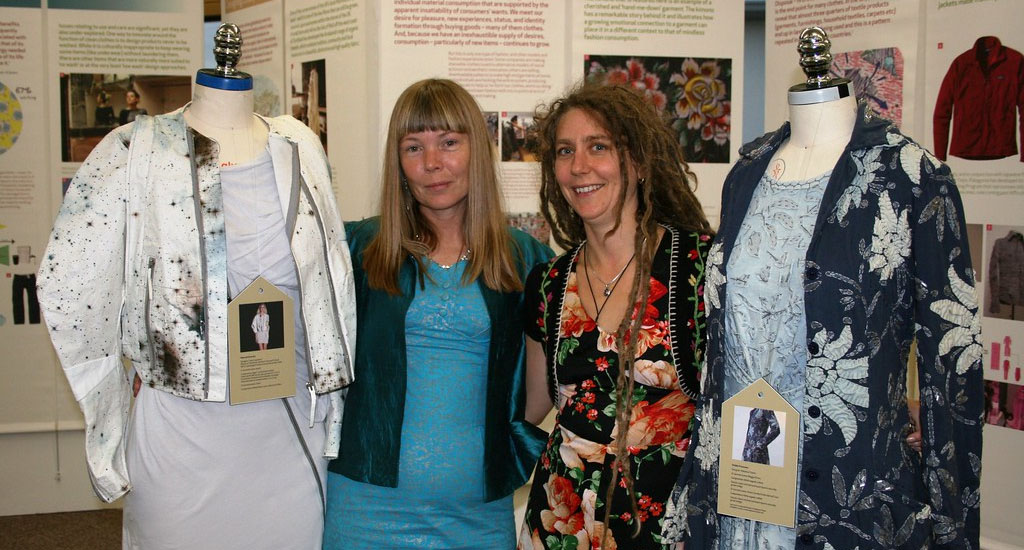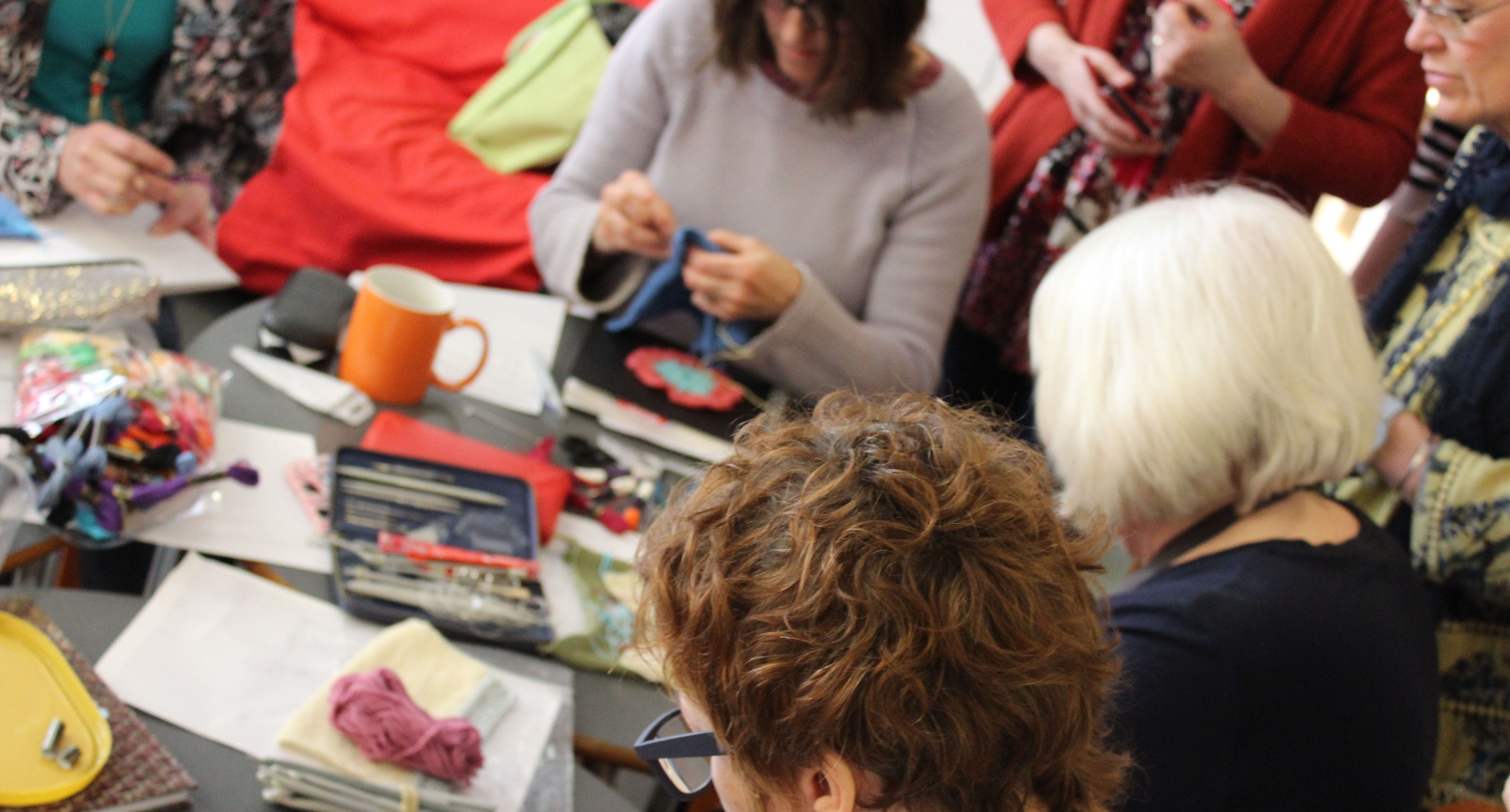Designing a Sensibility for Sustainable Clothing
Research overview:
Each season countless new collections of mass-produced, cheap and disposable clothing are produced, encouraging us as consumers to keep buying more. But the fashion industry is the second largest polluter in the world - just after the oil industry - and the environmental damage is increasing as the industry grows.
Key objectives:
There are many facets to the causes, effects and possible solutions to this damage: from the social, policy and political issues to technology and economy to pollution, emissions and the effects on landscape, biodiversity and communities. By bringing together researchers from across these fields, the ESI is working to provide insight and solutions to this complex, global issue.
Impact:
S4S has made a significant on the ways in which our research participants think, feel and act in relation to their clothing choices. Our 40 participants reported thinking twice before purchasing new clothes, developed new senses of the value of fabric and its transmutability, and shifted to buying quality items over a quantity of items. The project helped amateur and professional workshop facilitators to realise their potential, in some places kick-starting their new entrepreneurial endeavours. We also contributed to parliamentary enquiries on ‘Fixing Fashion’, and presented our briefing and project materials directly to the House of Lords.

In the last few years, clothing has really come into policy and media spotlights as a result of its negative environmental and social externalities. Many initiatives to tackle the significant trail of destruction from the complex supply chains and ‘race to the bottom’ (cut price labour, low environmental standards) of fast fashion focus at the industry level. S4S is an attempt to shift the lens away from a production focus towards the consumer. We are motivated to understand the ways in which experiential learning can help shape the ways people think, feel and act about clothing.
Prof Clare Saunders
Saunders, C., Griffin, I., Hackney, F., Barbieri, A., Hill, K. J., West, J., & Willett, J. (2024).A Social Practices Approach to Encourage Sustainable Clothing Choices. Sustainability. 16(3):1282.
Willett, J., Saunders, C., Hackney, F., & Hill, K. (2022). The affective economy and fast fashion: Materiality, embodied learning and developing a sensibility for sustainable clothing. Journal of Material Culture, 13591835221088524.
West, J., Saunders, C., & Willet, J. (2021). A bottom up approach to slowing fashion: Tailored solutions for consumers. Journal of Cleaner Production, 296, 126387.
Hackney, F., Hill, K., Saunders, C., Willett, J. 2021. Changing the World, Not Just Our Wardrobes: A Sensibility for Sustainable Clothing, Care, and Quiet Activism. In Paulicelli, E., Manlow, V., Wissinger, E. The Routledge Companion to Fashion Studies.
Hackney, F., Saunders, C., Willett, J., Hill, K., & Griffin, I. (2020). Stitching a sensibility for sustainable clothing: Quiet activism, affect and community agency. Journal of Arts & Communities, 10(1-2), 35-52.
Fiona Hackney, Katie Hill and Clare Saunders (2019) Jack’s Jumper: Designing a Sensibility for Sustainable Clothing Communities, International Foundation of Fashion Technology Institute Conference 2019, Manchester. Featured here: https://fashioninstitute.mmu.ac.uk/iffti2019/papers/
Katie Hill, Fiona Hackney, Clare Saunders, Joanie Willett and Irene Griffin (2018) Designing a Sensiility for Sustainable Clothing: Practice Led Arts Research, Expanding Communities of Sustainable Practice @LAU, Leeds Arts College.
Clare Saunders, Irene Griffin, Katie Hill, Anya Barbieri, Joanie Willett and Fiona Hackney (2019) Designing a Sensibility for Sustainable Clothing: Making and Mending as a Social Practice to Encourage Pro-Environmental Behaviour Change, paper presented at the PSA conference, April 2019, Nottingham.
Fiona Hackney, Joanie Willett, Clare Saunders and Katie Hill (2019) Designing a Sensibility for Sustainable Clothing (S4S): Affective Activism, DR4C Symposium Paper [we are tidying up and close to a final draft, soon to be uploaded]
Fiona Hackney, Katie Hill, Clare Saunders, Joanie Willett and Irene Griffin (2018) Designing a Sensibility: Engaging People in Sustainable Fashion Consumption Through Making and Design Research, paper presented to Sustainable Fashion London 2018, International Society for Sustainable Fashion, September 2019.
University of Exeter press release: Spaces to make-do and mend would bring new life into high streets, study says (February 2024)
University of Exeter press release: Learning how clothes are made has a “transformative” effect on people’s relationship with fast fashion (August 2022)
Prof Clare Saunders talked on BBC Radio Cornwall about the latest study A bottom up approach to slowing fashion: Tailored solutions for consumers (April 2021)
University of Exeter press release: Making spaces on the high street for clothing repairs (April 2021)
The University of Exeter's Environment and Sustainability Institute and the GW4 Water Security Alliance held an online Think Tank, Towards Fashion Justice: A UK-India Exchange in July 2020. This was a follow up project from S4S. It was an interactive online event involving exports from academia and industry that explored multiple injustices in the fashion system from workers’ rights and environmental pollution through to cultural appropriation.
About Manchester: Appetite for fast fashion goes out of style when people learn about impact of mass-produced clothing, study shows. (June 2020).
University of Exeter press release: Learn how to avoid fast fashion at Cornish events this month. (August 2019)
Anya Barbieri (University of Exeter)
Irene Griffin (Falmouth University)
Prof Fiona Hackney (University of Wolverhampton)
Katie Hill (University of Wolverhampton)
Prof Clare Saunders (University of Exeter)
Dr Jodie West (University of Exeter)
Dr Joanie Willett (University of Exeter)



